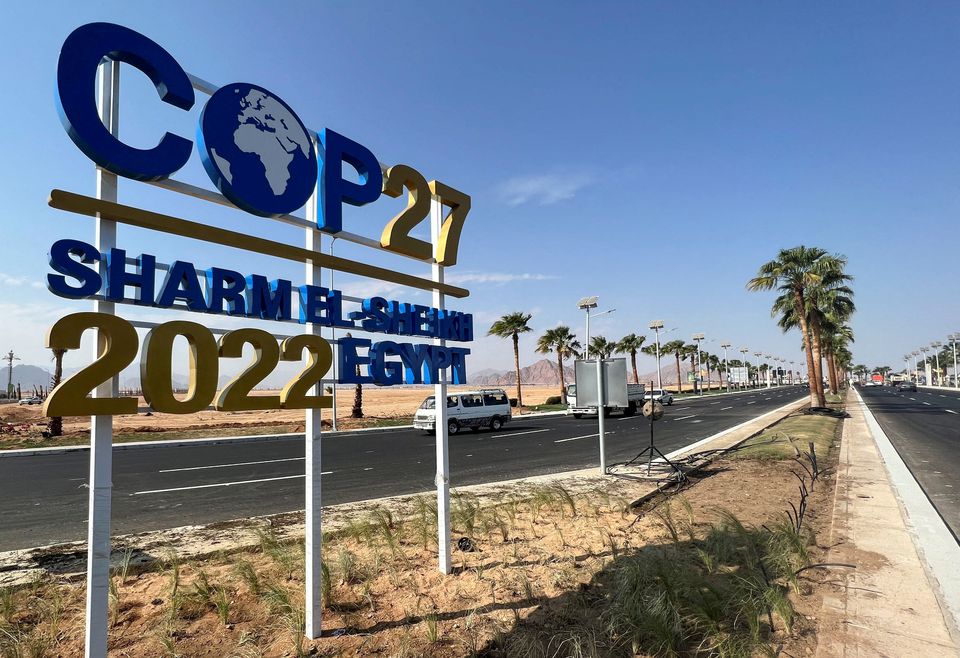The 27th Conference of Parties, as expressed in our first instalment will be the greatest test of goodwill at such a critical forum. It will obviously be overshadowed by the darkness of the new geopolitical context unleashed by the Russia-Ukraine war.
As if developing and emerging economies did not have enough to worry about with the horrors of climate change, they must now grapple with the implications of this new era. They are now left to plead once more, on this global stage, for their age-old appeal for climate financing to be heard.
For Guyana, the key message at COP27 will be centred on the world fulfilling the long-lost promise of financing for adaptation for small developing states.
At a press conference held jointly this month with the British High Commissioner to Guyana, Jane Miller, Guyana’s President, Dr. Mohamed Irfaan Ali, provided some insight on the frame of mind going into COP27.
On reflection, the Head of State opined that COP26 was bold and full of optimistic pledges. For him, stakeholders certainly bit off a big chunk of the highest possible climate ambition and tried their best to digest same.
Since COP26, President Ali, like many other world leaders, believes that optimism has softened, or in some cases, dissipated since Russia invaded Ukraine. The energy crisis became so much more complex—the shotgun was essentially fired, and we dare say, several times, for nations to race to energy independence.
Ali noted that the world witnessed first-hand, how quickly coal plants were fired up in Europe, and how swiftly some nations have made an about-turn, agreeing that natural gas is the fastest transition fuel. The world also saw an uptick in oil block auctions with the United Kingdom launching one of the most massive bid rounds for 2022.
Shrinking global oil inventories are also having a domino effect with the pockets of consumers feeling the proverbial squeeze as food and gas prices soar.
Leaders are no doubt going into COP27 with a reality check and Guyana’s President agrees with this.
In his own words, he said, “…COP27 is different because it comes in the reality of what we are facing and the energy conversation I believe must take an important place on the agenda. Last COP, we were saying natural gas is not a transition fuel and that was taken off the agenda, now natural gas is the transition fuel, and we have a more complex energy environment now where energy security itself is threatened and that will call for serious reflection.”
In terms of Guyana’s efforts thus far, the President’s administration has advanced the Low Carbon Development Strategy (LCDS) 2030 which outlines how Guyana will monetise its forests and transition to other low-emission energy sources.
But even as Guyana, a new oil producer with incredible green credentials, does more than its fair share to address this global phenomenon, Ali said the main question for COP27 will be: How do we raise the financing that is needed for adaptation and who stands to suffer if we fail?
For Ali, COP27 will have to address what criteria are applied to small island developing states so that they can have easier access to financing facilities. Ali has said that this becomes an even more important issue to tackle when one considers the debt crisis that has gripped Caribbean nations which are still recovering from the COVID-19 pandemic.
Considering the foregoing, Guyana’s President has said he will be championing, from the regional perspective, a move towards a Multidimensional Vulnerability Index (MVI). This measurement seeks to increase eligibility for small island developing states to receive greater financing to address their unique vulnerabilities—namely, their proximity and reliance on the ocean and climate change.
Ali said Guyana and other regional actors would no doubt be championing the creation of a vulnerability fund for the classification of access to financing. This is the same line that was taken by the Head of State last year as well as his counterpart, Prime Minister of Barbados, Mia Mottley. Russia’s actions have caused many in the developed world to backslide on their promises.
With the war deepening the energy crisis and leaving most opting for self-preservation, it is left to see if the Region’s call will once again, will be met with violent silence.
About Energy Insights
From the people who bring you day-to-day coverage through OilNOW – the Caribbean’s premier oil, gas and energy information service – the Energy Insights column offers perspectives and analyses on the evolving energy sector in the South American/Caribbean region, and further afield.




